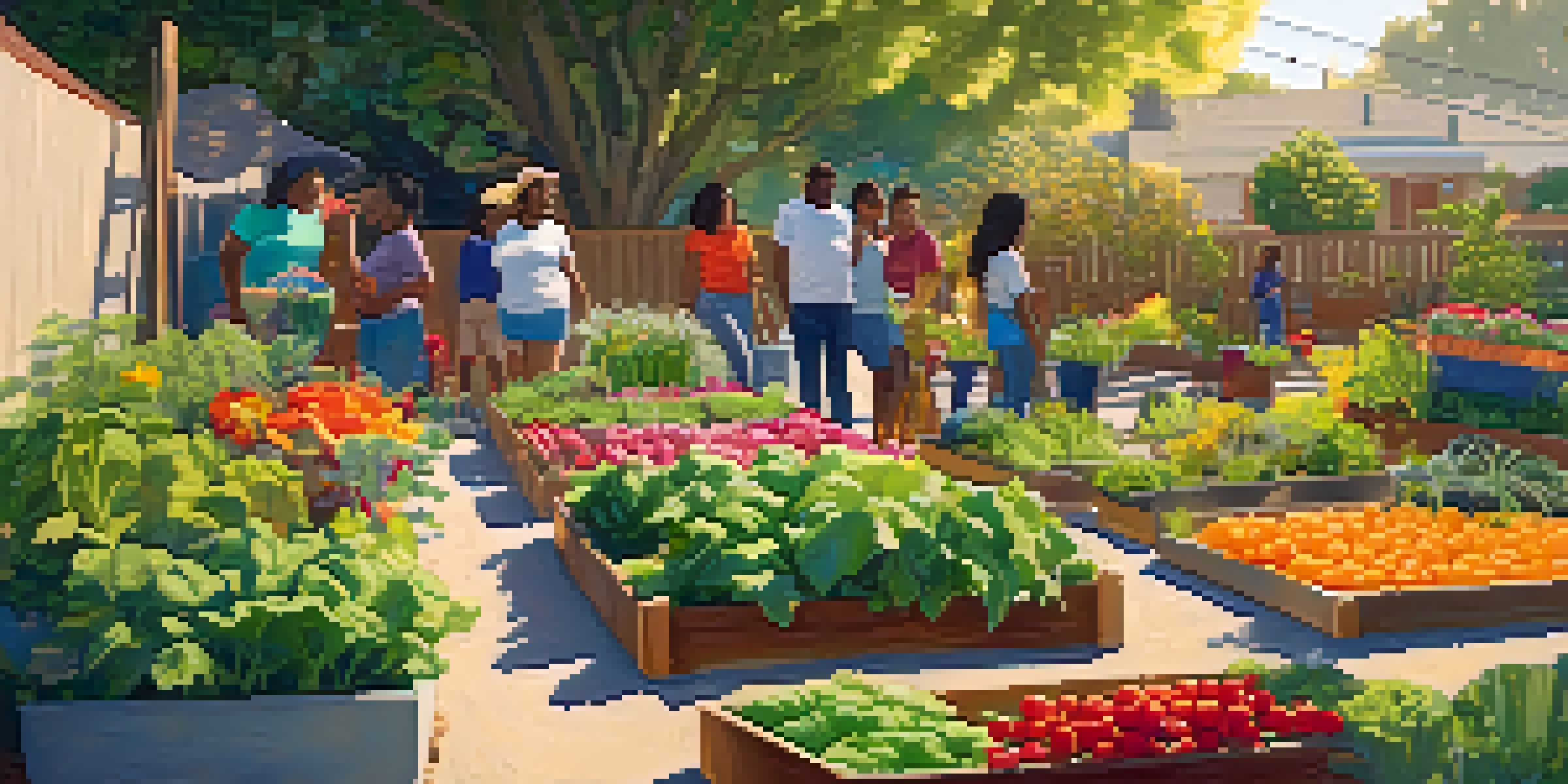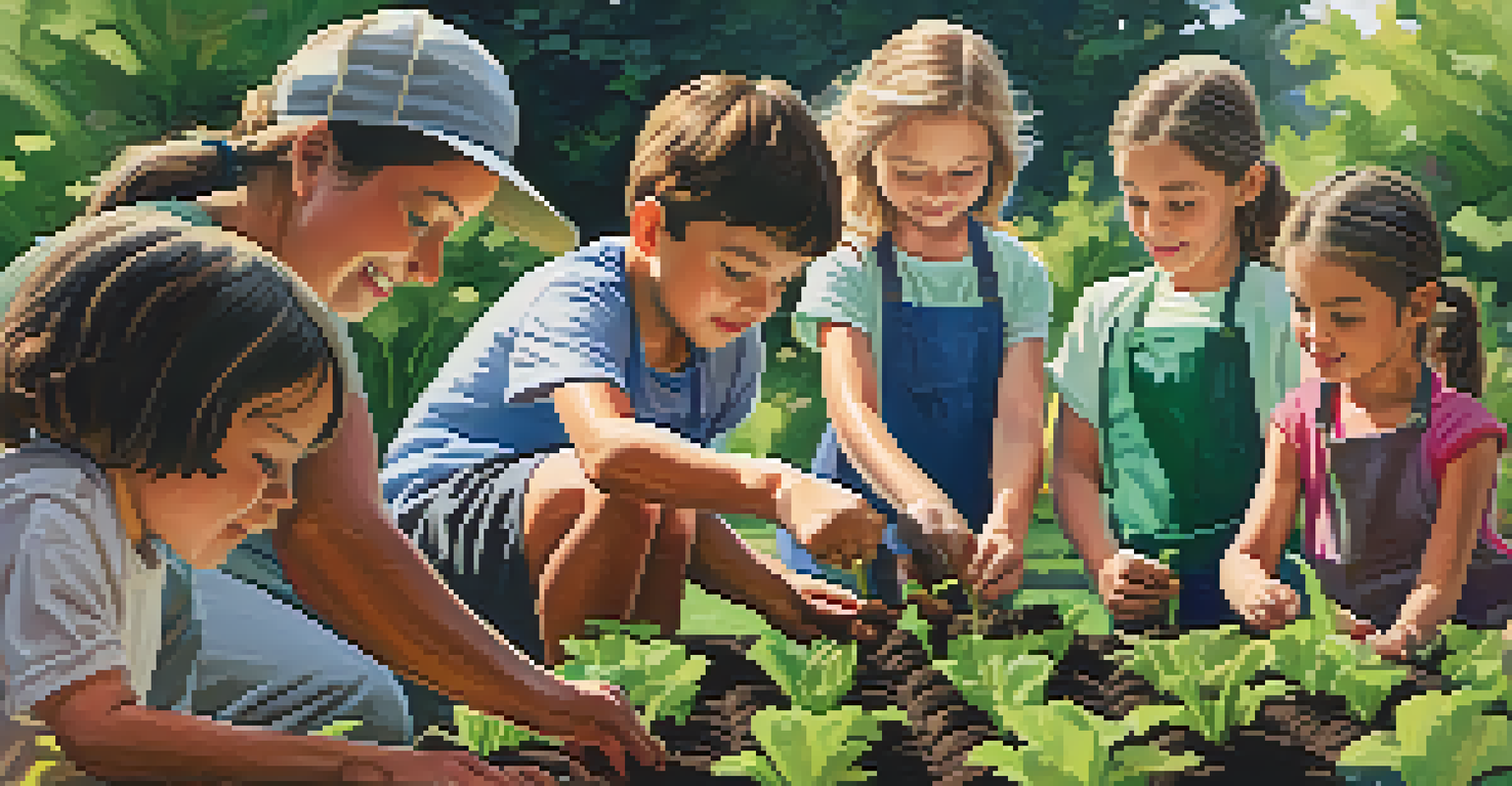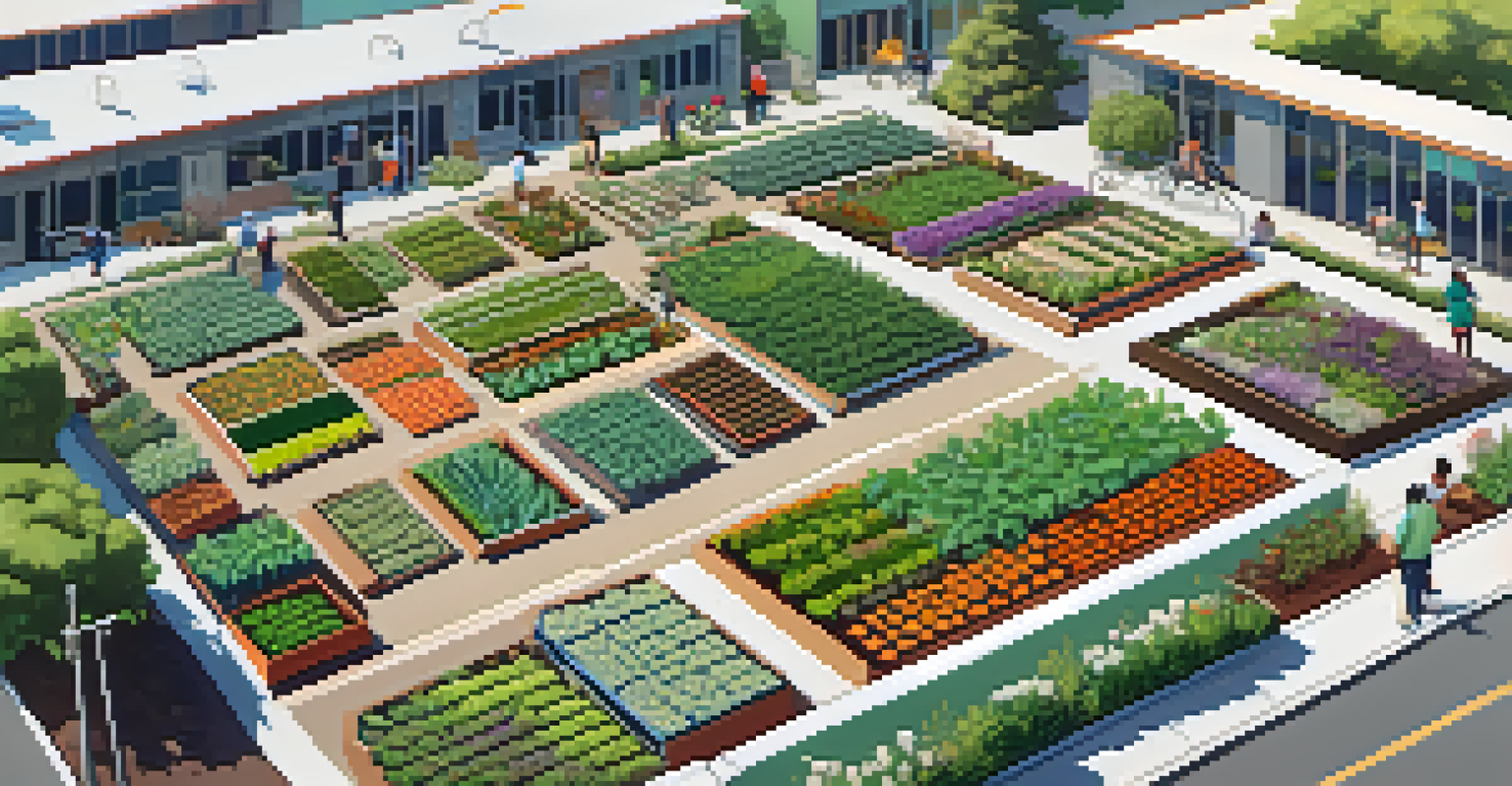Transforming Vacant Lots: Community Gardening in Compton

The Rise of Community Gardening in Compton
Community gardening has seen a remarkable surge in Compton, as residents come together to transform neglected spaces into vibrant green areas. These gardens not only beautify the neighborhood but also foster a sense of community and collaboration. With vacant lots often seen as eyesores, community members are taking action to reclaim these spaces for productive use.
To plant a garden is to believe in tomorrow.
As people become more aware of the benefits of locally grown food, community gardens serve as a practical solution to food deserts in urban areas like Compton. Fresh produce is not just a luxury; it’s becoming an essential part of daily life for many residents. This shift in perspective highlights how community gardens can contribute to healthier lifestyles.
Moreover, these gardens provide a platform for education and empowerment, teaching skills such as gardening, cooking, and sustainability. It's not just about planting seeds in the ground; it's about planting hope and knowledge within the community.
Benefits of Gardening for Community Cohesion
One of the most profound impacts of community gardening is the way it brings people together. Neighbors who may have never interacted before find common ground in their love for gardening and the environment. This collaboration fosters friendships and strengthens community ties, creating a supportive network of individuals.

Gardening events, workshops, and harvest celebrations encourage participation from all age groups. Children learn the importance of nurturing plants, while adults share their gardening wisdom and experiences. These shared moments not only enrich the gardening experience but also build a sense of belonging.
Community Gardens Foster Cohesion
Community gardening brings neighbors together, strengthening relationships and creating a supportive network.
As people work side by side in the gardens, they cultivate more than just plants; they cultivate trust and understanding among diverse community members. This social cohesion is vital for creating a resilient and engaged community.
Addressing Food Insecurity Through Local Produce
Compton faces challenges related to food insecurity, with many residents lacking access to fresh fruits and vegetables. Community gardens are stepping in to fill this gap, providing a reliable source of nutritious food right in the neighborhood. By growing their own food, residents can reduce dependency on processed options from distant grocery stores.
The best time to plant a tree was 20 years ago. The second best time is now.
These gardens also encourage sustainable practices, as gardeners learn about composting, water conservation, and organic farming techniques. This knowledge empowers residents to make informed choices about their diets and the environment. It’s a win-win situation, benefiting both health and ecological awareness.
Furthermore, many community gardens have established partnerships with local food banks, donating surplus produce to families in need. This collaboration strengthens community bonds and ensures that no one goes hungry.
Environmental Impact of Urban Gardening
Transforming vacant lots into community gardens has significant environmental benefits. These green spaces help improve air quality by filtering pollutants and providing oxygen. Additionally, they contribute to biodiversity by creating habitats for various species, including birds and beneficial insects.
Urban gardening also plays a crucial role in managing stormwater runoff. Plants absorb rainwater, reducing flooding risks and preventing soil erosion in heavily paved areas. This natural approach to water management supports a healthier urban ecosystem.
Combating Food Insecurity Locally
These gardens provide access to fresh produce, reducing reliance on processed foods and addressing food deserts.
Moreover, gardens can help combat the urban heat island effect, where city areas become significantly warmer than their rural surroundings. By introducing greenery, community gardens can help cool the environment and provide a refreshing retreat for residents.
Educational Opportunities in Community Gardens
Community gardens in Compton serve as outdoor classrooms where residents can learn various skills. Workshops on gardening techniques, nutrition, and cooking are often organized, equipping participants with valuable knowledge. These educational opportunities are particularly beneficial for children, instilling a love for nature and science.
Hands-on experiences in the garden teach participants about the life cycle of plants, soil health, and the importance of pollinators. This practical learning reinforces concepts that might be taught in school, bridging the gap between education and real-world application.
Additionally, local schools have begun to incorporate field trips to these gardens, allowing students to engage with their community and understand food production firsthand. Such initiatives inspire the next generation to appreciate the environment and take an active role in their community.
Challenges Faced in Community Gardening Initiatives
Despite the many benefits, community gardening in Compton does not come without challenges. One major hurdle is securing funding and resources to start and maintain gardens. Many community members are eager to participate, but the lack of financial support can hinder progress.
Additionally, issues such as soil contamination in urban areas can pose risks to food safety. Community gardeners must test soil and implement remediation strategies to ensure their produce is safe for consumption. This added layer of complexity can be daunting for new gardeners.
Environmental Benefits of Urban Gardens
Community gardens improve air quality, support biodiversity, and help manage stormwater runoff in urban settings.
Moreover, ongoing community engagement is essential for the long-term success of these gardens. Ensuring consistent participation and enthusiasm from residents can be challenging, especially as life’s demands pull individuals in various directions.
The Future of Community Gardening in Compton
Looking ahead, the future of community gardening in Compton is promising. As awareness of the importance of local food systems grows, more residents are likely to get involved in gardening initiatives. This trend could lead to even more vacant lots being transformed into productive spaces that benefit the community.
Community organizations and local government support can play pivotal roles in fostering this growth. By providing resources, training, and grants, they can help sustain existing gardens and encourage the establishment of new ones. These collaborations can amplify the positive impact of community gardening.

Ultimately, the vision for Compton is one where every resident has access to green spaces and fresh food. With continued dedication and community spirit, the dream of a thriving urban garden network can become a reality.